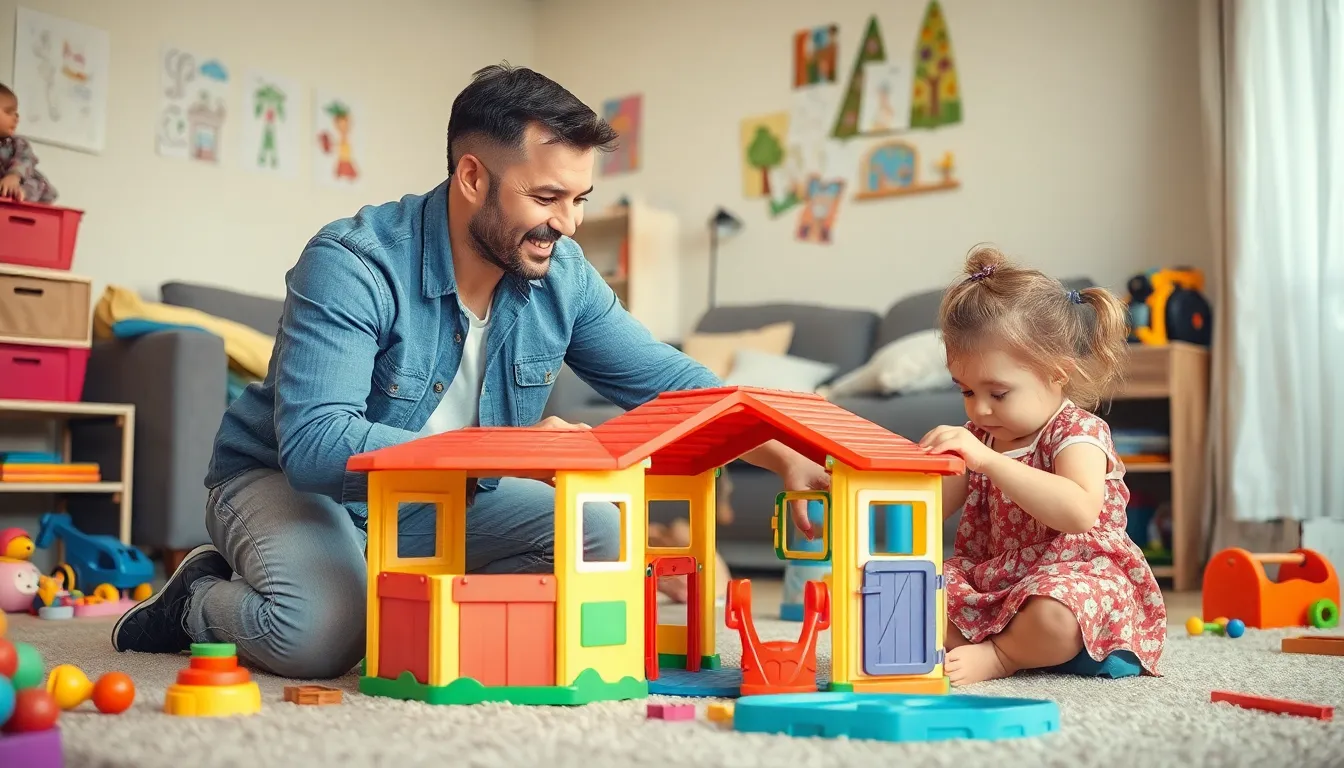Foster care mentoring isn’t just about providing guidance; it’s about changing lives one laugh at a time. Imagine being the superhero in a child’s life, armed with nothing but a listening ear and a knack for fun. Foster kids often face challenges that would make even the toughest adult cringe, but with the right mentor, they can navigate these waters like pros.
These young heroes need someone who understands their journey and can sprinkle a little joy along the way. Mentoring in foster care offers a unique opportunity to make a real difference while having a blast. So why not step into the role of a mentor? It’s not just about teaching life skills; it’s about building trust and creating memories that last a lifetime. Join the ranks of those who’ve discovered that laughter and support can truly change the world.
Table of Contents
ToggleUnderstanding Foster Care Mentoring
Foster care mentoring plays a crucial role in supporting children in difficult situations. This relationship involves guidance, encouragement, and emotional support.
Definition of Foster Care Mentoring
Foster care mentoring refers to pairing a mentor with a foster child to provide consistent support. One-on-one interactions help foster children develop social skills, build resilience, and enhance self-esteem. Mentors serve as positive role models, guiding children through challenges while also celebrating their successes. Relationships cultivated in this manner foster trust and enable children to express themselves freely. Community organizations often facilitate these mentorship programs, ensuring alignment with the unique needs of foster youth.
Importance of Mentorship in Foster Care
Mentorship in foster care significantly impacts children facing adversity. Research shows that children with mentors experience improved emotional well-being and academic outcomes. Supportive relationships lead to increased confidence and lower likelihoods of engaging in risky behaviors. Mentors can help foster children navigate their feelings, providing a safe space for expression. Positive mentoring often results in a sense of belonging, fostering hope and optimism for the future. Ultimately, mentorship contributes to the overall development and stability of foster children, helping them transition into adulthood successfully.
The Role of Mentors in Foster Care

Mentors play a crucial role in the lives of foster children by fostering supportive relationships and facilitating skill development. Their involvement significantly impacts the emotional and practical growth of these young individuals.
Supportive Relationships
Mentors establish meaningful connections with foster children, offering a stable presence amid uncertainty. Through consistent engagement, mentors help children feel valued and understood. Trust forms as mentors listen and validate their feelings. This emotional safety encourages kids to express themselves openly. For some children, relationships with mentors serve as a primary source of joy and reassurance. Bonding with a mentor helps cultivate resilience, allowing foster children to face challenges more effectively. Ultimately, these supportive relationships enhance their overall well-being and sense of belonging.
Skill Development
Skill development is another vital aspect of mentorship in foster care. Mentors provide guidance on essential life skills, including communication and problem-solving. They create opportunities for children to practice social skills through regular interactions, helping them navigate various situations. Offering constructive feedback allows mentors to foster self-improvement. Additionally, mentors introduce educational resources that enhance academic skills, positioning children for future success. By engaging in activities together, mentors promote creativity and critical thinking. Skill development through mentorship equips foster children with tools they require for independent living and future endeavors.
Benefits of Foster Care Mentoring
Foster care mentoring offers substantial benefits that positively impact foster children’s lives. Mentors provide emotional and educational support, leading to overall well-being and development.
Emotional Support
Mentors serve as a stable source of emotional support for foster children. They create trusting relationships that allow kids to express feelings openly. This supportive environment helps children build resilience, essential for overcoming challenges. Regular check-ins and shared activities foster joy and reduce feelings of isolation. Mentors also encourage self-worth, instilling confidence in children who might feel overlooked. The emotional safety mentors provide builds a foundation for positive mental health, contributing to improved coping strategies in stressful situations. Ultimately, this consistent emotional support plays a vital role in helping foster children navigate life’s ups and downs.
Educational Advancement
Mentorship significantly enhances educational outcomes for foster children. Through tailored guidance, mentors help identify individual learning styles and challenges. They introduce educational resources that facilitate academic skill growth. One-on-one tutoring sessions enrich understanding of difficult subjects, leading to better grades. Mentors stimulate curiosity, inspiring a love of learning that extends beyond the classroom. Involvement in educational activities also encourages children to set and achieve personal goals. Increased engagement in school often results in higher graduation rates and successful transitions to higher education. This focus on education builds a foundation for future endeavors, empowering foster children to pursue their dreams.
Challenges in Foster Care Mentoring
Foster care mentoring presents several challenges that can impact effectiveness. Understanding these obstacles is crucial for mentors seeking to make a difference.
Common Obstacles
Limited resources often hinder mentoring relationships, affecting both time and support available. Mentors face emotional barriers as well, such as dealing with their own past experiences or the complexities of children’s backgrounds. Communication barriers can also arise due to differences in age, interests, and life experiences. The transient nature of foster placements adds another layer of difficulty, with some mentors struggling to maintain consistency with children who move frequently. Lastly, societal stigma towards foster care can lead to misunderstandings, making it essential to foster community awareness and support.
Strategies to Overcome Challenges
Building strong, open communication channels helps address emotional and relational barriers. Establishing a consistent schedule reinforces stability in mentoring relationships. Utilizing community resources can also enhance support for both the mentor and mentee. Prioritizing training opportunities equips mentors with the skills necessary to navigate difficult situations effectively. Engaging local advocacy groups fosters a supportive environment that challenges stigma and raises awareness. Always focusing on compassion and understanding strengthens the bond between mentor and child, creating lasting impacts.
Foster care mentoring stands as a beacon of hope for children navigating turbulent experiences. The commitment of mentors not only fosters emotional growth but also enhances educational outcomes, paving the way for brighter futures. By building trust and providing unwavering support, mentors help children develop vital life skills and resilience.
Despite challenges, the rewards of mentoring are profound. Every moment spent together can transform a child’s life, instilling a sense of belonging and purpose. As communities rally around these young individuals, the impact of dedicated mentors can resonate for years to come, creating a ripple effect of positive change. Embracing the role of a mentor is an invitation to be part of something greater, making a lasting difference in the lives of foster children.







